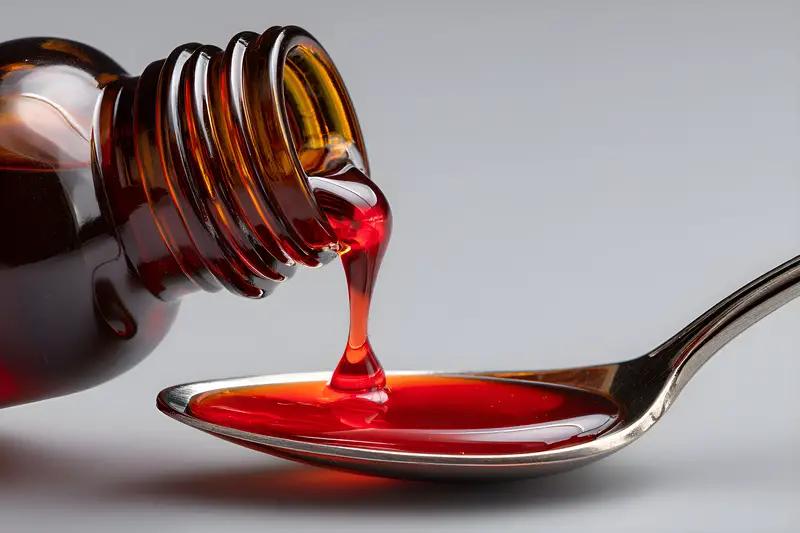Authorities in India have reported that at least 22 children under the age of five have died after ingesting cough syrup tainted with a lethal industrial chemical.
The fatalities occurred over the last month in Madhya Pradesh state, where children were administered Coldrif syrup, a product of Sresan Pharmaceuticals based in Tamil Nadu. Laboratory analysis revealed that the syrup contained diethylene glycol in concentrations up to 48.6 percent—nearly 500 times above permissible levels. Diethylene glycol, a toxic compound used in antifreeze and brake fluid, is deadly even in small quantities, especially for young children.
Among the 22 victims, 17 were from Chhindwara district, two from Betul district, two from Pandhurna district, and one from Parasia town. The deceased included Shivam Rathore, 4, Vidhi Namita, 3, and Yogita Thakre, 2, who passed away between early September 2025 and early October 2025. Five additional children remain hospitalized in Nagpur with kidney complications.
Police apprehended G. Ranganathan, 75, the owner of Sresan Pharmaceuticals, at his residence on the morning of October 9. He is facing charges of culpable homicide not amounting to murder and drug adulteration. Madhya Pradesh police coordinated with Tamil Nadu authorities in a night operation for the arrest.
Rajendra Shukla, Deputy Chief Minister of Madhya Pradesh, stated that authorities acted swiftly upon learning about the deaths. He informed Asian News International that once it was discovered that the deaths were linked to Coldrif cough syrup from the Tamil Nadu company, officials quickly filed a case and constituted a special investigation team.
Children who consumed the contaminated syrup showed symptoms of acute kidney injury, such as decreased urination and increased waste levels in their blood. Ten children died while being treated at Nagpur’s Government Medical College and Hospital. Medical testing on one child, four-year-old Vikas Yaduvanshi, confirmed acute tubular injury through a kidney biopsy.
An inspection of the Sresan Pharmaceuticals facility revealed significant violations. The Tamil Nadu Drugs Control Department identified over 350 violations, including unsanitary storage and unlawful use of non-pharmaceutical chemicals. The company was found to be producing and selling drugs without appropriate manufacturing certification. Investigators discovered the company had illegally acquired 110 pounds of propylene glycol.
The crisis response faced delays. Upon arrival at a Bhopal lab on September 30, staff prioritized testing other medicines before taking leave for the Dussehra holiday. Tamil Nadu’s Drug Control Department did not start an emergency inspection until October 1. Led by Deputy Director of Drugs Control S. Gurubharathi, the inspection team conducted a raid on the plant in Kanchipuram district, uncovering multiple breaches of drug manufacturing and testing standards. Within a day, officials confirmed that Coldrif did not meet quality standards and posed health risks.
Madhya Pradesh has banned Coldrif and all other medications from Sresan Pharmaceuticals. Chief Minister Mohan Yadav ordered the suspension of two drug inspectors and a deputy director of the Food and Drug Administration. The state’s drug controller was transferred. Tamil Nadu revoked the company’s manufacturing license, while Kerala banned all Sresan Pharmaceuticals products. Uttar Pradesh also banned the syrup.
Authorities have detained Dr. Praveen Soni, a government pediatrician who prescribed the syrup at his clinic in Parasia. Most deceased children received treatment at his facility for cold, cough, and fever symptoms. He informed investigators that he had prescribed the cough syrup for 15 years. He is facing charges under the Bharatiya Nyaya Sanhita and the Drugs and Cosmetics Act and has been suspended from his duties.
The government has announced compensation of 400,000 rupees (approximately $4,800) for each family of the deceased children and pledged to cover all medical expenses for the hospitalized children. Officials have instructed shops to remove existing stock and initiated a campaign to retrieve the drug from homes in affected areas.
This incident is not isolated; Indian-manufactured cough syrups have previously caused fatalities. In 2022, over 70 children in Gambia died from kidney failure after consuming cough syrup imported from India. The World Health Organization found excessive diethylene glycol and ethylene glycol in the medicines. In Uzbekistan, 68 children died between 2022 and 2023 after consuming contaminated syrup produced in India. In January 2023, the U.S. Food and Drug Administration collaborated with the WHO to investigate contaminated cough syrups responsible for over 300 child deaths in Asia and Africa.
India ranks as the third-largest drug manufacturer globally, following the U.S. and China. Indian pharmaceutical companies fulfill 20 percent of the global drug demand and 60 percent of the vaccines used worldwide. Since October 2022, the WHO has issued six alerts concerning contaminated syrups, involving an estimated 15 Indian companies.
The issue often arises from a shared ingredient. Propylene glycol, used in cough syrups, can sometimes be contaminated with cheaper industrial chemicals like diethylene glycol, used as solvents in paints, plastics, and antifreeze fluid for brakes.
The Indian health ministry convened a high-level meeting to assess drug quality standards and the use of cough syrups for children. Health officials concluded that cough and cold medicines should not be administered to children under two years old and are generally not recommended for those under five due to minimal benefits and significant risks.
